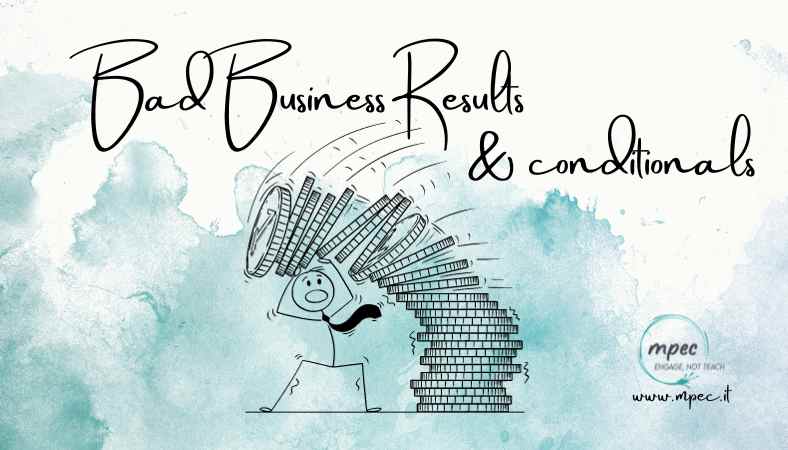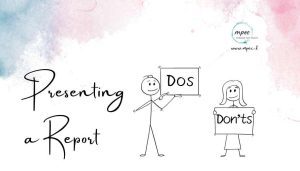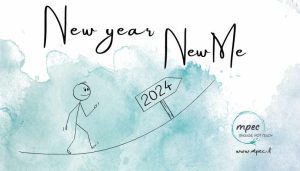Welcome to our Business Conversation Club! Today’s focus is on a challenging but crucial aspect of professional life: discussing a bad business result. We will specifically delve into using conditionals to express hypothetical situations, outcomes, and solutions. This session will help you navigate through difficult business conversations with tact and clarity. Whether it’s understanding what went wrong or exploring how things could have been different, mastering the use of conditionals is key. Let’s enhance our communication skills for these tough discussions!
Prepared for you by: My Personal English Coach
Non sai da dove iniziare?
Not sure where to start?
How This Works:
You will follow a coaching & grammar exploration of a situation of your choice. Before you head to the break out rooms for the 1st round of conditional-infused conversation, make sure you have identify a specific business situation from your past or from public domain. You’ll briefly summarise the situation and explain why this is your choice for today’s conversation: Talking About Bad Business Results Using Conditionals. Are you ready?
Round 1: Understanding the Result
- If the company’s /leader’s strategy had been more aggressive, do you think the outcome would have been different?
- Is there a possibility that someone made a mistake or overlooked something?
Key Grammar/Vocabulary Expressions:
- Second Conditional (e.g., “If we had known, we would have…”)
- Past Perfect Conditional (e.g., “Had we seen the signs, we might have…”)
- Speculation (e.g., “It’s possible that…”)
- Hypothetical Outcome (e.g., “The result could have been…”)


Round 2: Exploring Alternatives
Let’s explore alternatives in that particular business situation, shall we?
- “If you were in charge at the time, what would you have done differently?”
- “Should/if someone had invested more in research, would that have altered the outcome?”
Key Grammar/Vocabulary Expressions:
- Third Conditional (e.g., “If I had been leading, I would have…”)
- Conditional Question (e.g., “Would we have seen a different result if…”)
- Alternative Strategies (e.g., “Another approach might have been…”)
- Reflective Analysis (e.g., “Looking back, we should have…”)
Round 3: Planning for Future
- “If a similar situation arises in the future, what preventive measures could you consider?”
- “How can you ensure that, if faced with such a challenge again, your response will be more effective?”
Key Grammar/Vocabulary Expressions:
- Future Conditional (e.g., “If this happens again, I will…”)
- Precautionary Steps (e.g., “I must ensure that…”)
- Proactive Measures (e.g., “In the future, I could…”)
- Lesson Learned (e.g., “The key takeaway is that…”)

Remember – there is always more! Here is your Follow Up Video:
#BusinessEnglish #EnglishMeetings #ProfessionalEnglish #ConditionalSentences #BusinessCommunication #CorporateDiscussion #EnglishForBusiness #BusinessVocabulary #EnglishLearning #LanguageSkills #EffectiveCommunication #EnglishGrammar #BusinessStrategy #DiscussingFailures #BusinessChallenges #ProblemSolving #HypotheticalScenarios #EnglishConditionals #BusinessAnalysis #ManagementSkills
#IngleseCommerciale #RiunioniInInglese #IngleseProfessionale #FrasiCondizionali #ComunicazioneAziendale #DiscussioneAziendale #InglesePerAffari #VocabolarioAziendale #ApprendimentoInglese #CompetenzeLinguistiche #ComunicazioneEfficace #GrammaticaInglese #StrategiaAziendale #DiscutereFallimenti #SfideAziendali #RisoluzioneProblemi #ScenariIpotetici #CondizionaliInglese #AnalisiAziendale #CompetenzeManageriali







